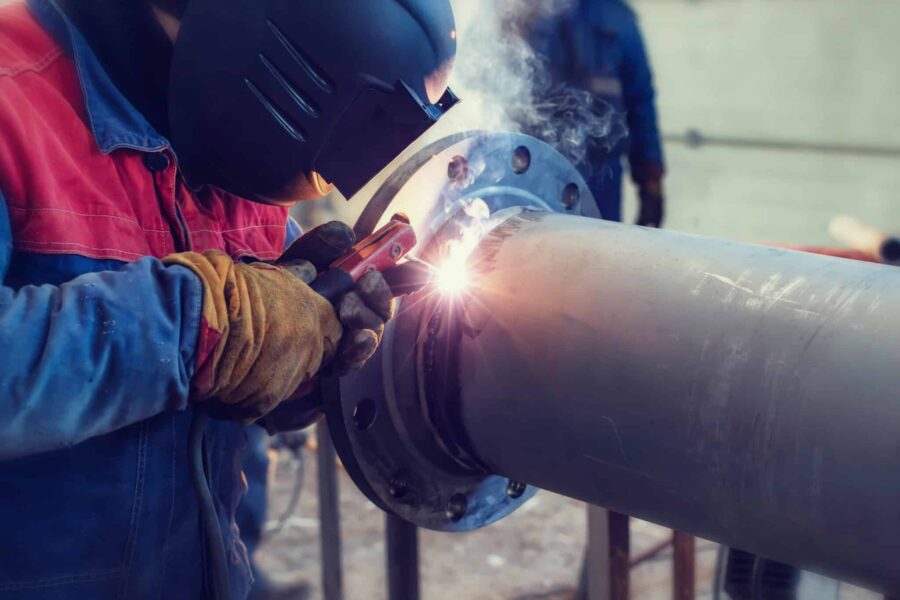
Across Europe’s energy, shipbuilding, and industrial sectors, the role of a skilled pipe welder cannot be overstated. The demand for professionals who can work to tight tolerances on critical piping systems has never been higher — yet many EU countries face acute shortages of qualified labour.
Pipe Welder Vietnam has emerged as a dependable solution for European contractors. Vietnamese welders bring together formal training, international certification, and a strong work ethic, making them a valuable asset for projects where precision, safety, and reliability are non-negotiable.
The Strategic Role of Pipe Welders in EU Industries
Pipe welders are essential in industries where fluids or gases must move under pressure through complex systems. Their work goes far beyond simply joining two pipes — it involves understanding metallurgy, welding procedures, and inspection requirements that guarantee performance under extreme conditions.
Oil & Gas Infrastructure
From subsea pipelines in the North Sea to refinery upgrades in Central Europe, Pipe Welder Vietnam provides expertise in:
-
6G and 6GR welding positions for critical joints.
-
Working with high-alloy steels and corrosion-resistant materials such as Inconel and duplex stainless steel.
-
Meeting ASME Section IX and ISO 9606 standards demanded by oil majors.
Shipbuilding and Marine Engineering
European shipyards rely heavily on pipe welders for:
-
Engine room piping for propulsion and cooling systems.
-
Cryogenic LNG piping in specialised carriers.
-
Compliance with classification society rules including DNV, ABS, and Lloyd’s Register.
Power Generation and Renewables
Pipe welders play a vital role in:
-
Steam lines and condensers in thermal power plants.
-
High-pressure hydraulic piping for offshore wind turbine installation vessels.
-
Hydrogen transport systems in emerging green energy hubs.
Why Pipe Welder Vietnam Meets EU Standards
1. Formal Certification Pathways
Vietnamese welders often train in government-accredited technical schools or private centres aligned with export agencies. Certifications include:
-
ISO 9606-1/2 – for steel and aluminium.
-
ASME IX – for high-pressure piping.
-
AWS D1.1/D1.6 – for structural and stainless steel.
These are validated through trade testing in 3G, 4G, and 6G positions, covering SMAW, GTAW (TIG), and FCAW processes.
2. Specialisation in Piping Work
Unlike general welders, pipe welders specialise in joint preparation, root pass integrity, and controlling distortion on round components. Their skill set is directly aligned with EU industry needs.
3. Cultural and Worksite Adaptability
Pipe Welder Vietnam candidates are trained in European health, safety, and environmental (HSE) regulations, punctuality, and team collaboration, ensuring minimal integration issues on site.
Technical Competence – More Than Just Welding
Pipe welding in the EU requires mastery of both technique and compliance. Vietnamese welders are trained to:
| Competence Area | Typical Requirement | How Vietnamese Welders Deliver |
|---|---|---|
| Joint Fit-Up | Root gap control within 0.5 mm | Use of precision clamps and gauges |
| Root Pass Quality | 100% penetration without burn-through | Controlled heat input with GTAW |
| Weld Profile | Smooth, uniform, no undercut | Multi-pass sequencing |
| NDT Compliance | RT, UT, PT, MT | Pre-qualification on client WPS |
Materials and Processes in Pipe Welding
Common Materials
-
Carbon Steel – Piping for water, steam, and oil.
-
Stainless Steel – Corrosion-resistant for chemical and food industries.
-
Alloys – Inconel, Hastelloy for high-temperature service.
Common Processes
-
GTAW/TIG – Preferred for root passes and thin-wall pipe.
-
SMAW/Stick – Versatile for outdoor and maintenance work.
-
FCAW – High deposition for heavy wall sections.
Corrosion Control in Piping Systems
European clients value Pipe Welder Vietnam for their knowledge of:
-
Selecting filler metals with matching corrosion resistance.
-
Applying purge gas techniques to protect stainless steel root passes.
-
Working alongside coating and insulation teams to extend service life.
Case Study 1 – Refinery Piping Upgrade, Poland
Client: Major oil refinery in Gdańsk.
Scope: Replacement of 120 m of high-pressure steam piping.
Result:
-
Weld acceptance rate: 98.7% after RT inspection.
-
Project delivered ahead of the planned shutdown schedule.
Case Study 2 – LNG Carrier Construction, Romania
Client: Shipyard specialising in LNG tankers.
Scope: Installation of cryogenic piping for LNG containment systems.
Processes Used: GTAW for root, SMAW for fill and cap.
Outcome: Zero rework required after classification society inspection.
Case Study 3 – Offshore Wind Installation Vessel, Netherlands
Client: Offshore EPC contractor.
Scope: Hydraulic piping for jack-up leg systems.
Challenge: Tight schedule and simultaneous operations in a congested yard.
Result: Vietnamese welders adapted within days, maintaining productivity without safety incidents.
Recruitment Workflow at LabourLink Vietnam
LabourLink does not store idle labour — recruitment begins only after a confirmed request:
-
Requirement Definition – Welding process, material type, thickness, inspection level.
-
Sourcing – From national networks of certified pipe welders.
-
Trade Test – Witnessed by client or recorded with inspection reports.
-
Deployment – Visa processing, travel arrangements, site induction.
Economic Advantages for EU Employers
-
Cost Efficiency – Up to 25% lower labour costs without compromising quality.
-
Retention – Higher completion rates on long-term contracts.
-
Productivity – Steady output even under challenging site conditions.
Future Trends – Pipe Welder Vietnam in the EU Market
European industries are shifting towards hydrogen infrastructure, carbon capture systems, and advanced nuclear reactors — all requiring certified pipe welders. LabourLink Vietnam is preparing its workforce through:
-
Advanced alloy welding training.
-
Exposure to robotic pipe welding systems.
-
Cross-training in NDT methods for faster defect detection.
Further Reading
Contact LabourLink Vietnam
📧 Email: info@labourlinkvn.com
📱 WhatsApp: +84 913 338 588